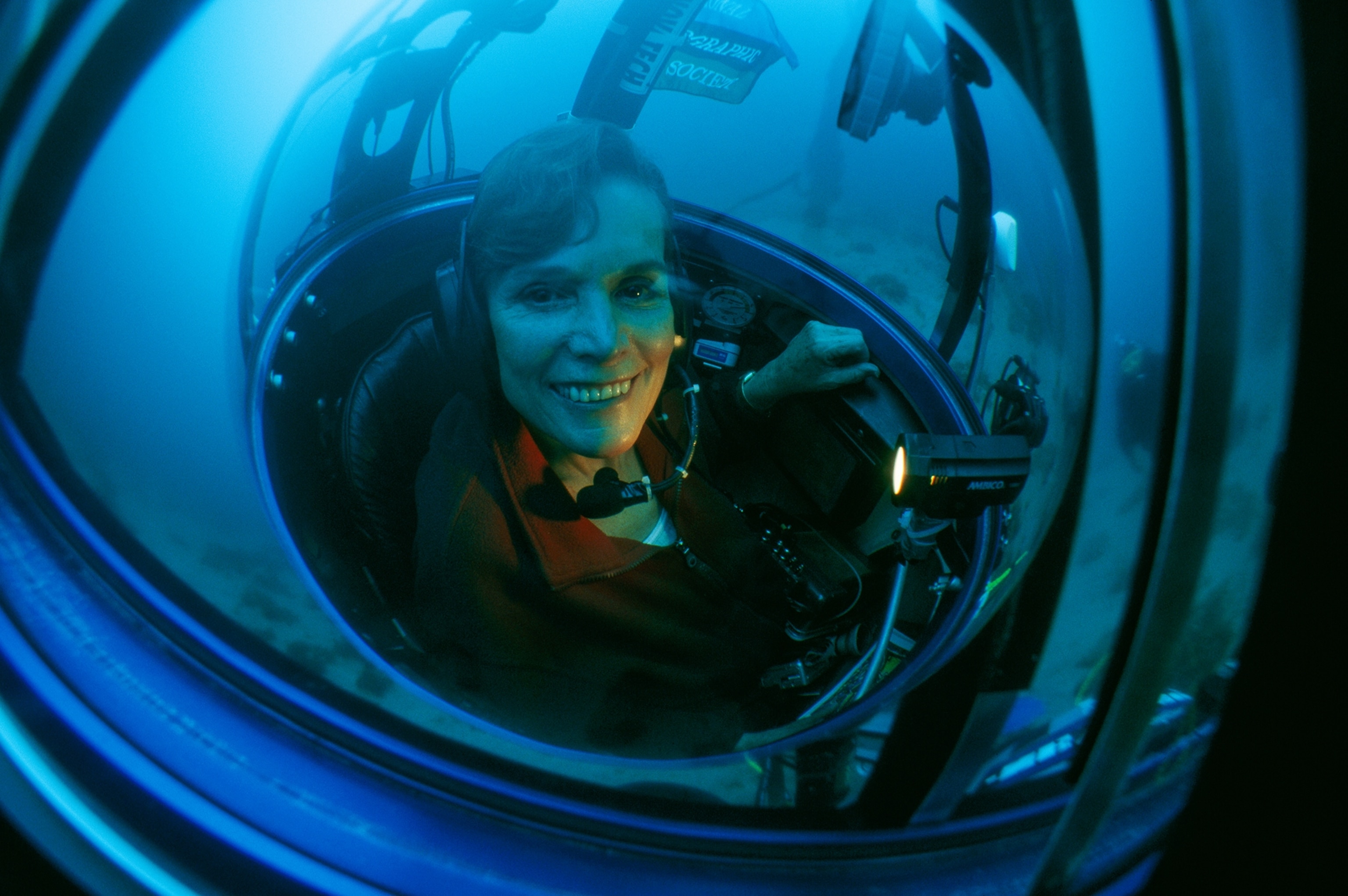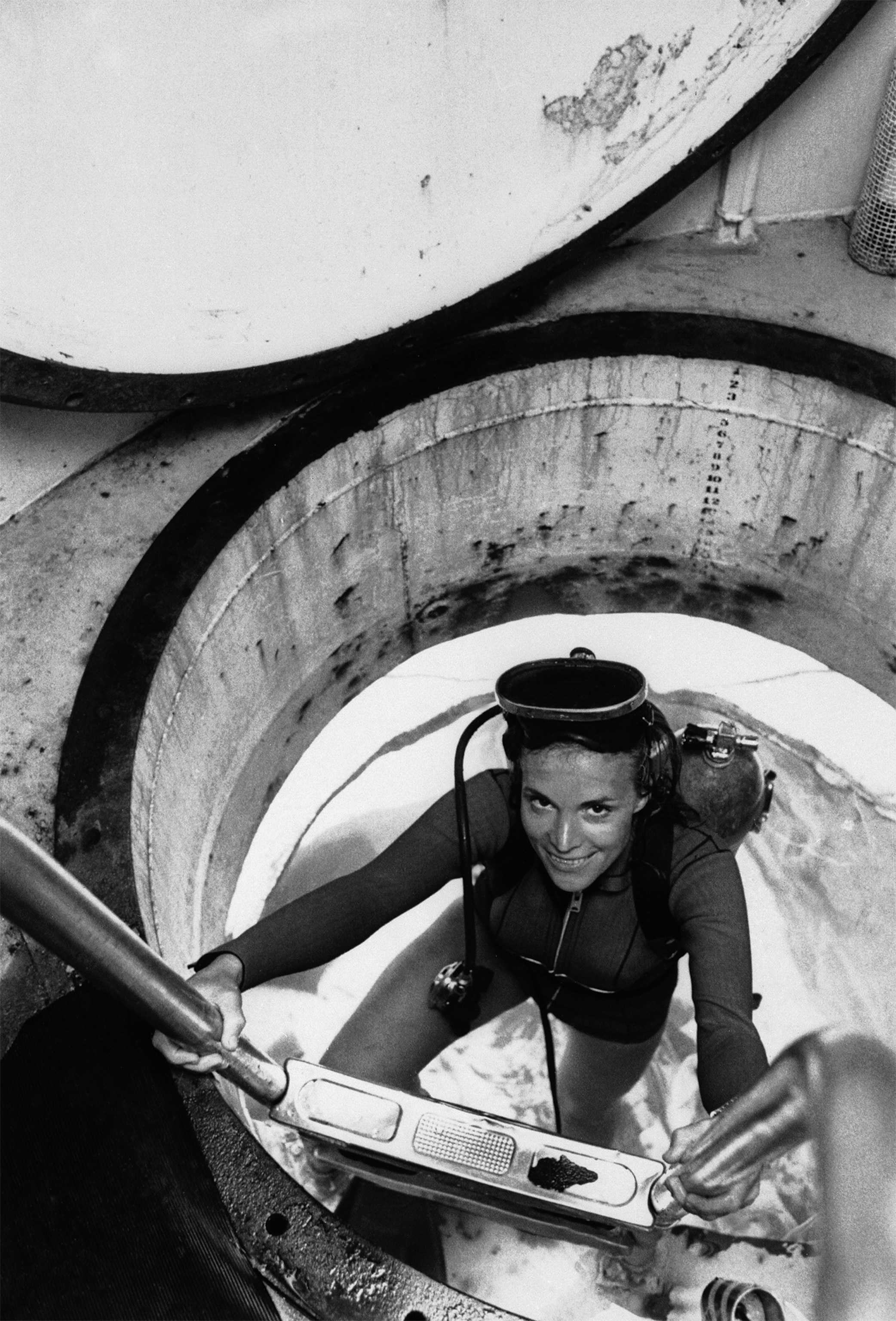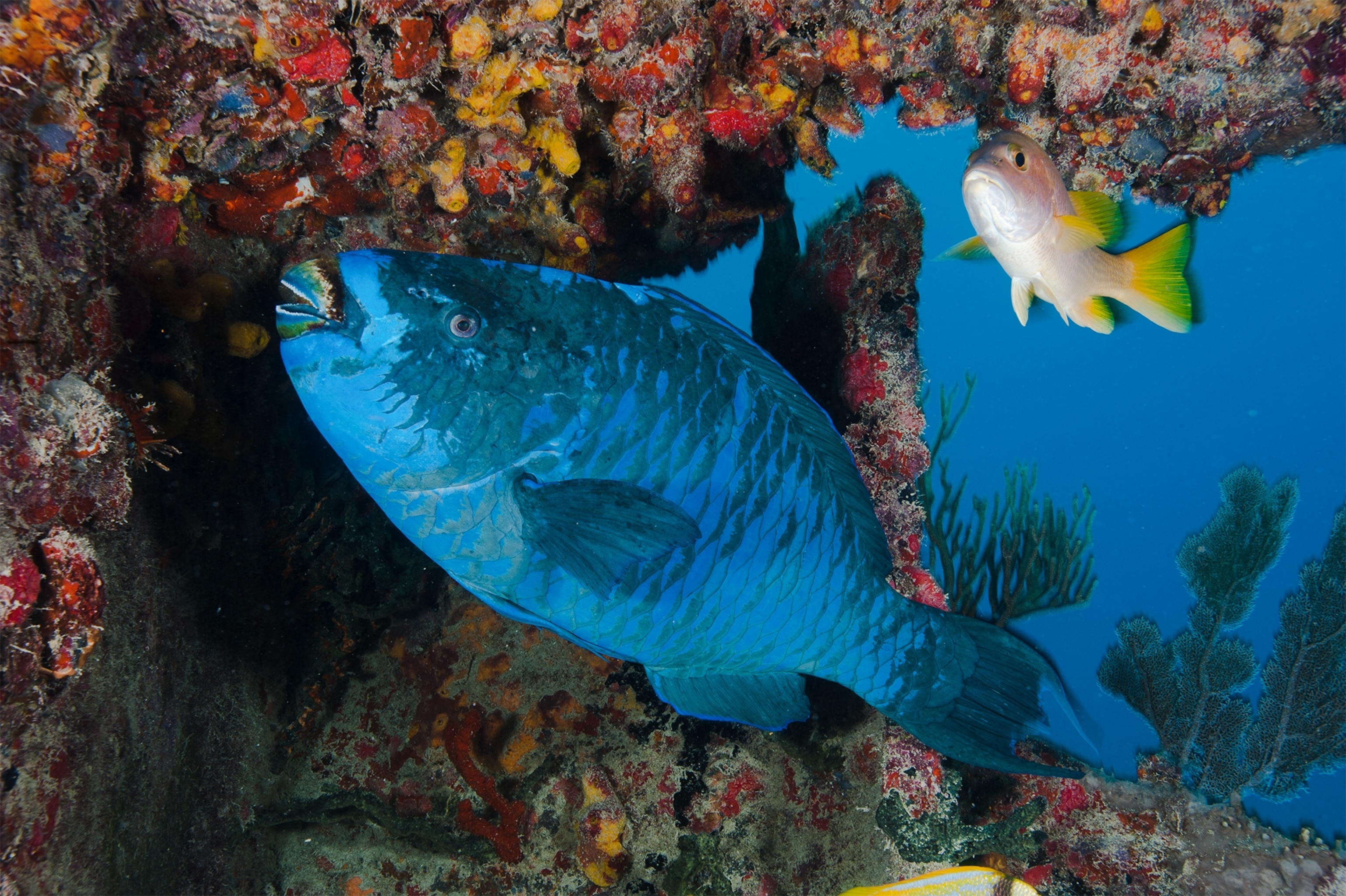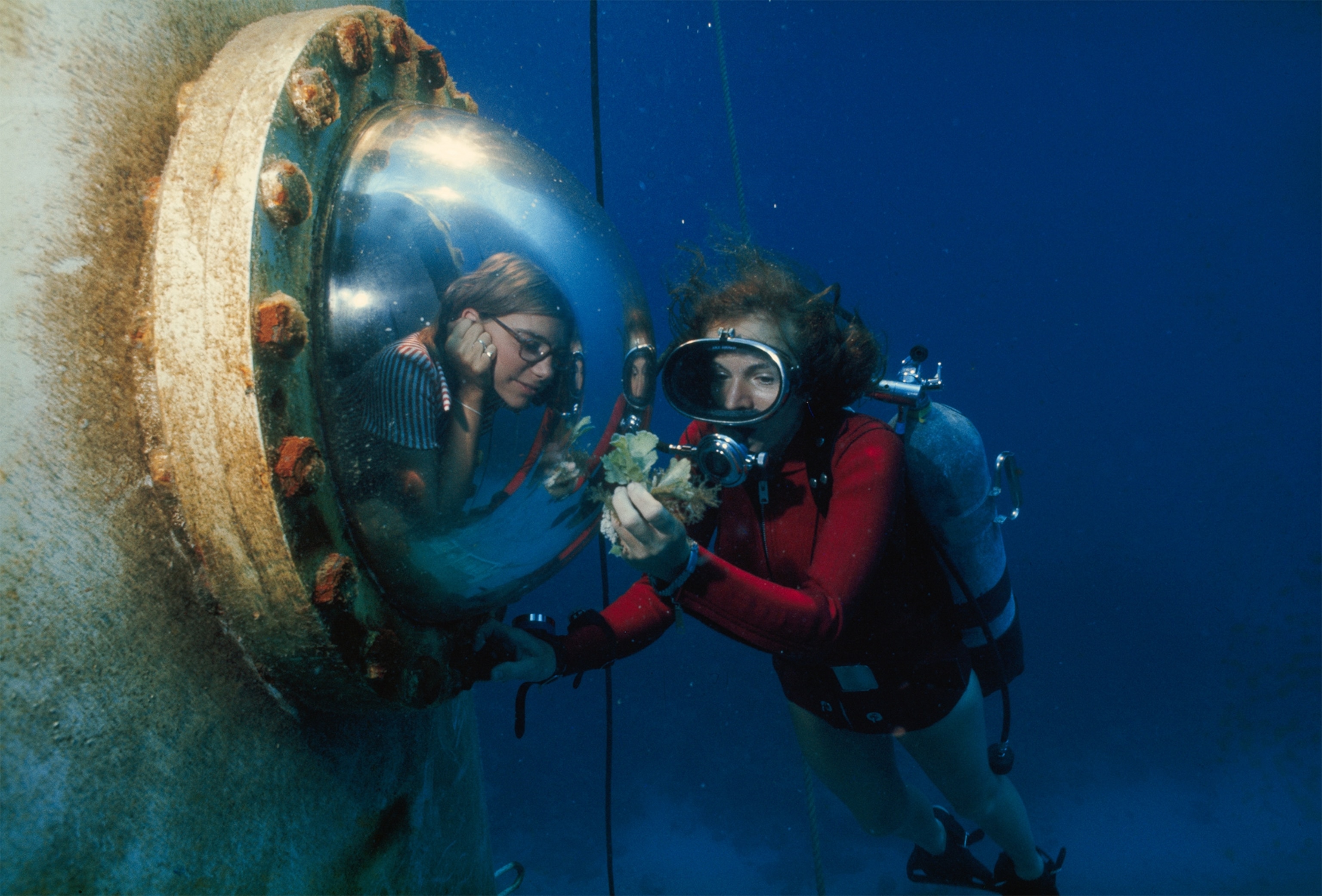
Q&A: Sylvia Earle’s Personal Journey and Why the Ocean is Vital to Life
Explorer shares her life below and above the sea in new documentary film.
National Geographic Explorer-in-Residence Sylvia Earle has seen many changes in the ocean over the last 60 years, through more than 7,000 hours of diving. She has witnessed firsthand disruptions to sea life from overfishing, pollution, ocean acidification, coral bleaching, and climate change.
Based on decades of scientific exploration and communication efforts, Earle has sounded the alarm that our oceans are in trouble. "No ocean; no life. No ocean; no us," she says. But it's not too late to head off the worst damage, she adds.
Earle's life and work are illustrated in a new documentary film, Mission Blue, that premieres on Netflix on August 15. Directed by Fisher Stevens (The Cove) and Robert Nixon (Gorillas in the Mist), the film follows Earle on her global quest to protect the sea.
Earle also has a book coming out through National Geographic on September 9, titled Blue Hope: Exploring and Caring for Earth's Magnificent Ocean.
National Geographic spoke with Earle about the film and her mission.
The film Mission Blue traces the personal journey of your life. Did you learn anything about yourself through the documentary process?
I was reminded of many things I had tucked away and conveniently forgotten. But what I think I'll never forget are the changes I've seen in the ocean over time. They are clear because the changes are so dramatic. The change is shocking. And humans are the vector of that change.
Are there any parts of the film that surprised you?
A lot of things surprised me. I've worked with many photographers and filmmakers over the years and have learned a lot about the way artists with cameras see the world. They try to tell stories. They try to take viewers to another place, to hold their attention. It's telling a truth while telling a story.
What I was not quite as comfortable with was the personal journey, it seemed less relevant to me than the issues facing the ocean. But [co-director] Fisher Stevens said, "People will want to see how you have managed to do what you have done, and how you have become a witness." So with a deep sigh I said, "OK, you are the experts."
The film suggests that you made some personal sacrifices over the years for your work, especially when it came to relationships. How do you feel about that now?
Not sacrifices, choices. There's a give and take, but that's true of everything.
There is one thing I would do if I could rewind and start over and that would be to spend more time with my children, my family. I was able and still can give to them, and now my grandkids, experiences that many others simply can't, because as an explorer and scientist I can take them to see things. My kids were diving with dolphins before they were teenagers. They got to go to other countries and meet lots of people, so I think there was a qualitative difference.

But I know there is no substitute for quantity, and I know I missed some things that were important to them because I was off in another part of the planet. We have to make those decisions as they arise. Sometimes I should have done things differently. But looking back is always easier.
The film shares some of the highlights from your decades of exploration beneath the sea. What advice would you give to the next generation of would-be explorers?
Please get out into wild places, whether it's in your backyard or if you have the opportunity to travel. It's hard to be narrow-minded if you travel and see other people, how they think, what they do. And get under the sea. Look at creatures and how they live. It's hard to be reckless with nature if you have spent time in a wild place. So be a curious explorer.
There's no substitute for actually being there yourself, but you can also read and explore new ways of communicating. There is an incredible access to knowledge now through the Internet that never existed before, so use that access.
Most of all, think of yourself as a part of the natural world and not just the human world.
Mission Blue explores a close personal connection you have long had with the Gulf of Mexico. What do you find most special about that body of water?
It was a wilderness when I was a kid and first got to know it. I went to high school in Clearwater, Florida, when it had clear water. It doesn't anymore. I was diving in the Keys [in early August] and the poor quality of the water was palpable. It was murky and many of the creatures that once were common were gone or less obvious.
The Gulf of Mexico is the area where I have made the most observations. I did my dissertation there and have made thousands of hours of dives there. Having a backbone of insight based on places you know very well over long periods of time really sharpens your understanding of how things work, of what it takes to make a system prosper, and what happens when we have taken things out or added things in. For me the Gulf has been a living laboratory.
The Gulf also helped me extrapolate to other places. On my first expedition, in 1964 in the Indian Ocean, I could see similarities to coral reefs that I knew well in the Gulf. I saw not the same species but some of the same kinds of fish: parrot fish, grouper, sharks. I saw predator-prey relationships and I could relate to it. The Gulf helped me see the Earth as an integrated system.
During and soon after the Gulf oil spill in 2010 much of the public was shocked and horrified by the scale of the disaster. But now it seems as if many people have forgotten about it, even though, as Mission Blue points out, there are actually more oil wells in the Gulf than before. Do you think people have become complacent?

We could not have seven billion people if we were still burning whale oil and wood. Our prosperity is deeply rooted in using energy from coal, oil, and gas. It has given us so much wealth and benefits, but now we have to shift gears and go to something else, because the downside of burning fossil fuels is threatening our life-support system. Now we are seeing our prosperity threatened because of climate change and ocean acidification.
Now we are armed with the knowledge and capacity to get it right. That's the great news. But people need to be aware. I hope the film conveys that message.
It isn't just the Gulf suffering because of spilled oil and the awful dispersants that were used to try to break it up, this is a global message. Whether it is mountaintop removal mining in West Virginia or threats to water in the Midwest because of fracking for gas, we must not lose sight of the real cost of the terrible legacy we may leave ourselves.
The film also had some moments that humanize fish and other creatures of the sea, such as when you film the impact of a factory trawler up close. Do you think people are open to that message?
I think it's fundamental. We used to think of whales as commodities and celebrated whalers as heroes. It was the same with many other animals. But we have emerged from the 20th century with a somewhat different attitude about most wild animals. It's not universal; some countries still extract a lot, but most people in most places value other attributes.
This comes with knowing that a live whale delivers far more value than dead whales ever could. They deliver experiences that people will pay millions to have, to see whales. And now we know that all creatures create a fabric of life upon which our lives depend. We have facts and figures to back up what should have been obvious all around us: there are only so many whales or birds or trees we can remove before the ecosystem starts to unravel.
The same is true for fish. They have much more value than as pounds of meat or barrels of oil. Fish distribute nutrients and play other vital roles in the sea. They are an integral part of the great blue engine of the ocean, which drives life on this planet. We couldn't see that when I was a girl, but now we can.
In the film you mention that you no longer eat fish, and you suggest that people should get health-promoting omega-3 fatty acids from plants, the way fish do. So what advice would you give to ordinary people when they are thinking about what they should eat?
Going back 10,000 years ago we were hunters and gatherers, but since then our prosperity has come from more efficient ways of feeding ourselves. With seven billion people, we have to get our priorities straight and choose the right foods to feed people. We don't have to eat tuna, squid, or orange roughy to survive. We've just gotten into the habit of it. But we have lots of choices.
We can get along very well on a plant-based diet. Already, around the world most of our calories and nutrition actually come from plants. And on the next level, we largely eat plant eaters like cows, chickens, pigs, sheep, turkeys, and ducks. It wouldn't be efficient to raise carnivores. Zoos know how expensive it is to keep big cats.
It's a problem that we have regarded fish as free. We feed them to cows, chickens, and pigs, but in many cases that's like feeding them owls or eagles. Some of the fish we take are a hundred years old, and many sharks take 20 or 30 years just to mature, so they've eaten a lot of things. So that's very expensive meat in terms of energy. It would make more sense to feed livestock plants or insects, which are fast growing. Live fish are more important than dead ones.
Over the past few months there have been massive marine reserves designated in the Pacific and more calls for international action on the high seas to combat overfishing, reduce plastic pollution, and confront climate change, among other issues. Do you think there has been momentum building?

I think so. I'm not alone in being a witness to these dramatic changes. People like the fishermen I recently spent time with on Martha's Vineyard can also see the changes and see what they can personally do about it. The leaders of Palau, Kiribati, New Caledonia, and other island nations are protecting their waters because they know that most of their nation is already underwater. Actually, 55 percent of the territory of the U.S. is underwater, so more than half of it is blue. That awareness is just beginning to reach the hearts and minds of people.
We have not just opportunity, we have the responsibility to get it right. It is beginning to be acknowledged around the world that protecting nature and the ocean is a good value. A business person knows that you don't consume all your capital. We've treated the ocean as capital that we've consumed, but once you pull back and see how the planet works, you start to make more practical decisions.
So how are we doing in protecting what you call "Hope Spots," marine areas around the world that are critical to the ocean's health?
Early in the 20th century the loss of natural systems on land came into focus for some leaders, such as Theodore Roosevelt, and a movement began for national parks. Soon we will be celebrating a hundred years of national parks in the U.S. Some say it's the best idea the U.S. ever had and it caught on around the world. So now about 12 percent of the world's land is protected.
In the 1970s a similar idea arose for the ocean, starting in Australia's Great Barrier Reef and with a little piece of the Florida Keys. But less than one percent of the ocean is under meaningful protection.
We protect these areas because we know that when we get into a wild place it touches our souls, our spirit. And now we also know that our very lives depend on taking care of these natural systems. On land, duck hunters realized that if they wanted to have ducks in the future they had to put some limits on hunting and protect marshes.
It's become clear that we need the same thing in the ocean, where we protect feeding areas and nurseries for fish to give them a chance to recover. If there are going to be fishermen you have to have fish.
The film ends on a hopeful note. Is that how you see the future?
Our existence depends on taking care of natural systems. Nature is not an option, it is vital. People are beginning to understand that, and now we have seven billion minds to solve problems. Today, a new discovery can sweep the world within hours. We also need to keep working on the big questions, like who are we? Where did we come from? Where are we going? To understand that, we've got to understand the value of the natural world, and not just as commodities.
This interview has been edited and condensed.